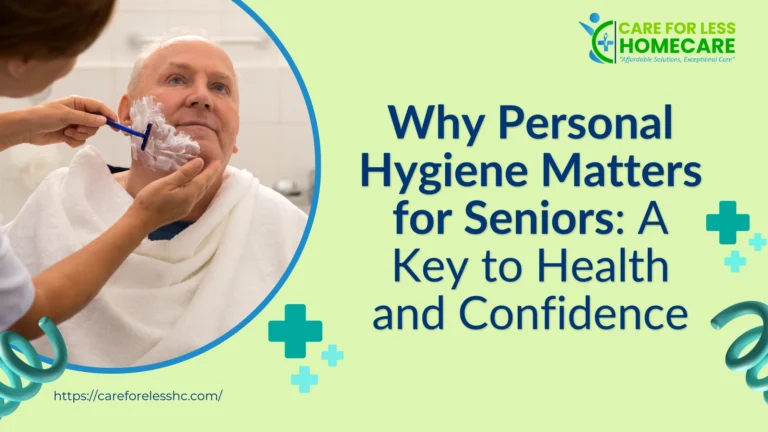When it comes to caregiving, maintaining personal hygiene is one of the most crucial and sensitive aspects of in-home care. Families want assurance that their loved ones are treated with respect, dignity, and professionalism. Personal hygiene support at home is more than just helping with bathing or grooming—it’s about fostering trust, ensuring safety, and promoting emotional well-being.
Table of Contents
Why Personal Hygiene Support at Home Matters
Personal hygiene is essential for preventing infections, boosting self-esteem, and supporting overall health. For seniors and individuals with disabilities, everyday tasks like bathing, toileting, or oral care can become challenging. That’s where trained caregivers step in to provide compassionate assistance while upholding privacy and dignity.
Key Steps Caregivers Take to Provide Respectful Hygiene Care
Caregivers follow structured and empathetic approaches to provide hygiene care that meets individual needs:
1. Establishing Trust and Comfort
Trust is the foundation of personal hygiene support at home. Caregivers start by building rapport and making the care recipient feel comfortable. They introduce themselves, explain each task in advance, and ask for permission before proceeding.
2. Maintaining Dignity and Privacy
Every action taken is guided by the principle of preserving dignity. Caregivers ensure that doors are closed, curtains are drawn, and unnecessary exposure is avoided during hygiene routines. They provide coverings like towels or robes during bathing or dressing tasks.
3. Practicing Safe Handling Techniques
Safety is always a priority. Caregivers are trained in proper body mechanics to assist clients without causing injury. Non-slip mats, grab bars, and shower chairs are used to prevent falls. Gloved hands and sanitized tools ensure hygiene protocols are followed.
4. Customizing Care Plans
Not everyone has the same hygiene needs. Caregivers tailor personal care routines based on individual health conditions, mobility, and preferences. For example, some clients may prefer sponge baths over showers.
5. Promoting Independence
A good caregiver encourages clients to participate in their hygiene routine as much as possible. Whether it’s brushing their teeth or combing their hair, every bit of independence retained supports confidence and mental well-being.
6. Using High-Quality Hygiene Products
From gentle cleansers to skin-friendly wipes, caregivers select products that suit the client’s skin type and medical conditions. They are attentive to allergic reactions, rashes, or other skin concerns.
7. Monitoring and Reporting Health Changes
Personal hygiene time is often when subtle health changes are noticed. Caregivers observe for signs of infections, bruising, or sores and report them promptly to families or healthcare providers.
Building Trust with Families
Families entrust caregivers with the most intimate aspects of their loved ones’ lives. Transparency, open communication, and consistent updates are vital. Professional caregivers maintain detailed logs of hygiene care provided, including any observed health concerns.
Training and Certification: The Backbone of Safe Care
Caregivers undergo comprehensive training in personal care, infection control, and safe transfer techniques. Reputable home care agencies also conduct background checks and require continued education to maintain standards.
According to National Association for Home Care & Hospice (NAHC), properly trained caregivers enhance not only physical safety but emotional comfort as well.
Tips for Families Choosing Personal Hygiene Support at Home
- Look for certified caregivers with experience in personal care.
- Ask about the hygiene products used and safety measures followed.
- Discuss preferences and routines with the caregiver.
- Monitor communication and responsiveness from the agency.
Conclusion
Choosing the right caregiver for personal hygiene support at home can greatly impact your loved one’s quality of life. From building trust to maintaining hygiene with skill and sensitivity, the right approach ensures peace of mind for families. With trained professionals in place, families can rest assured their loved ones receive care that is not only effective but respectful.
✅Need Safe, Respectful Hygiene Support for a Senior at Home?
Contact us today to learn how our compassionate caregivers can help with personalized hygiene care—delivered with dignity, privacy, and trust.
📞 Call us at 1-973-561-8777
🌐 Visit our website : https://careforlesshc.com/
📍 Serving Newark, NJ, and surrounding areas.
📧 email us at Info@careforlesshc.com
💬 Let’s talk about how we can help—your recovery starts here.



